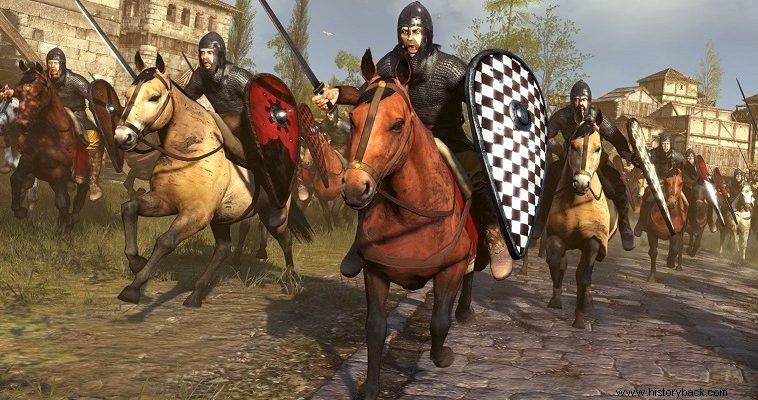
The Byzantine emperor John II Komnenos had married the Hungarian princess Piroska who was named Irini. In this way he found himself involved in the dynastic disputes of the Hungarian kingdom. John gave asylum to a relative of his wife, but the Hungarian king Stefanos preferred him dead.
When John refused to hand him over the Hungarian king invaded Byzantine lands and began to plunder them. The Hungarians attacked many cities forcing the emperor to undertake an organized campaign against them. In 1128 John actually moved directly against the opponents and forced the enemies to retreat. The Hungarians fortified themselves on the north bank of the Danube , in the fortress of Chramos, in today's Nova Palanka, Serbia.
The Hungarians, under their general Setefel, had fortified themselves on the north bank of the Danube with the fortress of Chram as a point of support. Ioannis saw that the crossing of the river was difficult under the enemy's attacks and missiles. And even if the Byzantines crossed the great river with relatively small losses, the whole of the enemy forces would be waiting for them to attack them as they would disembark from their boats.
Faced with this situation Emperor John resorted to a strategy. So he ordered a part of the army composed of Italian (from Ligurian) mercenary knights and mercenary horse archers to move, to the northwest, supposedly, in search of another passage on the river.
The Hungarian commander did not perceive their movement. When this division crossed the Danube and found itself almost to the south of the Hungarians, John led the rest of the men who crossed the river in ships. With the support of the missiles of the shipwreckers, the Byzantines landed on the opposite bank headed by John. Immediately the Byzantine cavalry charged against the astonished Hungarians. At the same time, the section that had carried out the circling maneuver also attacked. The Hungarians literally disappeared. The Byzantine cavalry pursued them deep where in their attempt to cross a bridge they caused it to collapse and thousands were killed.
Such was the surprise that the Byzantines captured the fortress of Chramos and the other Hungarian fortifications without a fight. The Hungarian Chronicle states:"The hand of God was with the Greeks." and the Hungarians could not resist. The carnage that took place was so great that the like has never been seen before. The Karas river (a tributary of the Danube where the bridge collapsed) was filled with human blood... Meanwhile more and more Hungarians were slaughtered like oxen and nothing could save them from the Greeks »...
After his great victory John punished the Serbs who had found an opportunity to rebel against the empire. In Hungary, a revolution broke out against King Stefanos. The Byzantine-Hungarian War ended the following year with a treaty.
PANTELIS D. KARYKAS
